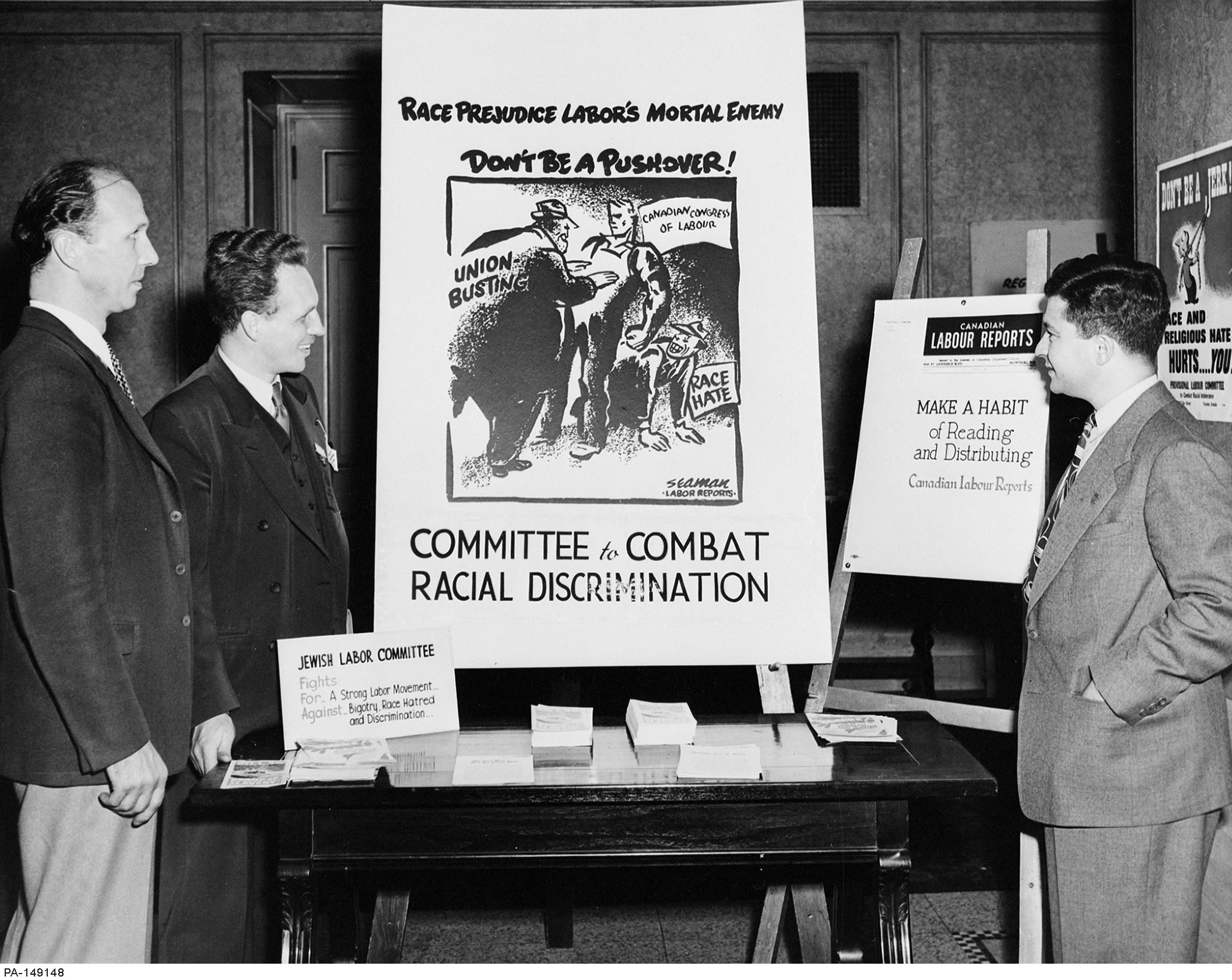Frank Scott
The following is an excerpt from the Library and Archives Canada catalogue’s biography of Francis Reginald Scott (Frank Scott):
“Frank Scott, poet, lawyer, university professor, was born in Quebec City, a son of the poet and minister F.G. Scott. In 1919 Scott graduated from Bishop’s University, then taught for a year and left for Oxford as a Rhodes Scholar in 1920. He entered McGill’s Law School in 1924 … In 1932 Scott and historian Frank Underhill founded the League for Social Reconstruction, a socialist study group, and contributed to its publication, Social Planning for Canada (1935). Scott was the League’s president 1935-1936 and was also active in the C.C.F., serving as its national chairman 1942-1950 … In law, Scott specialized in constitutional law, as well as the defence of civil liberties. Among his best known cases were the Roncarelli and Lady Chatterley’s Lover cases, and his opposition to the Quebec Padlock Act. He became dean of McGill’s Law Faculty in 1961. During the 1960s, Scott helped found the New Party, the successor to the C.C.F. and the predecessor of the New Democratic Party, before retiring from active party politics, and served on the Royal Commission on Bilingualism and Biculturalism. He continued to publish poetry, including Signature (1964), his Selected Poems (1966), Trouvailles (1967) and The Dance is One (1973). In 1977 Essays on the Constitution appeared, for which he won the Governor-General’s Award. His Collected Poems was published in 1981.”
Scott was a pivotal figure in the civil liberties movement. Not only was he involved in most of the civil liberties groups that were formed in Quebec before the 1960s, including the Canadian Civil Liberties Union and the Montreal Civil Liberties Association, but he also co-founded the Ligue des droits de l’homme (LDH) in 1963. A respected constitutional scholar, Scott was a leading voice in the movement for a bill of rights in Canada and was highly critical of Diefenbaker’s 1960 Bill of Rights because it was not entrenched in the Constitution. And yet Scott sided with Prime Minister Trudeau over the implementation of the War Measures Act during the October Crisis of 1970. He would part company with the LDH in the mid-1970s, after it embraced Quebec nationalism and an egalitarian approach to human rights advocacy.
Further Reading
Djwa, Sandra. The Politics of Imagination: The Life of F.R. Scott. Toronto: McClelland and Stewart, 1987.
Lambertson, Ross. Repression and Resistance: Canadian Human Rights Activists, 1930-1960. Toronto: University of Toronto Press, 2005.
Archives
Library and Archives Canada has a collection on Frank Scott
 Site Resources
Site Resources-
- Any use of material or referencing content from HistoryOfRights.ca should be acknowledged by the User and cited as follows:
–
- Clément, Dominique. “page title or document title.” Canada’s Human Rights History. www.HistoryOfRights.ca (date accessed).


 Encyclopaedia
Encyclopaedia 
 © 2024 COPYRIGHT CLÉMENT CONSULTING. ALL RIGHTS RESERVED.
DEPARTMENT OF SOCIOLOGY, UNIVERSITY OF ALBERTA
© 2024 COPYRIGHT CLÉMENT CONSULTING. ALL RIGHTS RESERVED.
DEPARTMENT OF SOCIOLOGY, UNIVERSITY OF ALBERTA